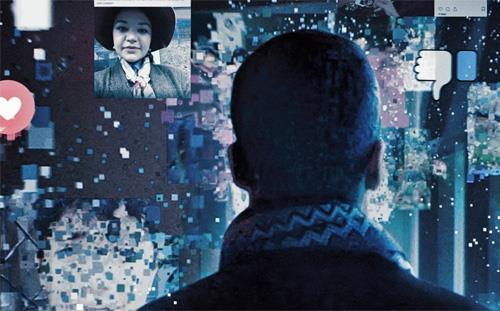
Cambridge Analytica, John Oliver noted in a Last Week Tonight monologue last season, is not the Latin, scientific name for John Oliver, sadly.
Would that it was. Around the time of Oliver’s monologue, news of the Cambridge Analytica scandal and how consultants there manipulated undecided voters to help Donald Trump win the US presidential election — aided and abetted by user profiles provided by the ever-helpful Facebook — was all media wonks were talking about, it seemed.
Today, Cambridge Analytica is no longer with us, at least not in the form it was then. Facebook has been forced into the glare of the media spotlight and endless government hearings in both the US and Europe. And Trump is still president, happily awaiting re-election next year.
The just-released Netflix documentary The Great Hack seeks to expose exactly what happened, when, where, and how. The why we already know.
The Great Hack has divided critics, largely along — surprise! — ideological lines. TheEconomist, a conservative-minded publication slightly to the right of the Wall Street Journal, labeled it “a misinformed documentary about misinformation.” The Guardian, a liberal-minded publication somewhere to the left of the New York Times, dubbed it a “searing exposé of the Cambridge Analytica scandal.”
(FYI: The Orwell Prize-winning journalist Carole Cadwalladr, who broke the news of the scandal for the Observer, is featured prominently in the Netflix documentary. For those who may not know, theObserveris the Sunday edition of the Guardian; the two share the same owners and have a joint operating agreement (JOA) though they maintain separate newsrooms. For now.)
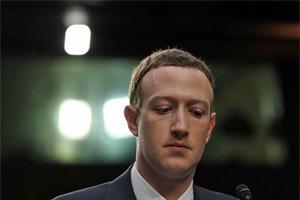 Thankfully, none of this matters to most casual readers of TV Worth Watching because the primary questions for the site are: Is The Great Hack good TV, and is it worth watching?
Thankfully, none of this matters to most casual readers of TV Worth Watching because the primary questions for the site are: Is The Great Hack good TV, and is it worth watching?
The answer, on both counts, is yes and yes.
At just under two hours, The Great Hack moves briskly, with a vibrant, lively snap. It’s stylish, easy on the eyes, tightly edited and, unlike most made-for-TV documentaries, it has understated background music that’s unobtrusive and yet eerily effective. Small wonder, because unlike most HBO and PBS documentary programs, it was composed by an actual human being, not stitched together by a computer-generated algorithm from a library of pre-recorded music tracks.
The Great Hack has a number of stylistic flourishes, too. People’s personal data — “Data rights are human rights” is one of the film’s recurring catchphrases — is shown as a dazzling computer-generated effects: little bits and pieces of data dust, millions of tiny crystals of electronic data, the information about ourselves we’ve shared with Facebook and Snapchat, credit card companies and banks, our smartphones and our personal screens, pouring out of office towers and rising from traffic-choked streets, evaporating into thin air like so many clouds of gleaming electronic glass. The message is clear and simple to understand: Every piece of information about ourselves, from our childhood likes and dislikes to our most recent credit card purchases, from our “likes” and dislikes on social media to the personal, private details we share in emails and direct messages, is recorded in cyberspace and stored, to be shared at some future date by whoever meets the asking price.
 Cambridge Analytica understood, on behalf of its paying clients, that the most valuable voters in any political campaign or referendum are the undecideds, the “persuade-ables” to use Cambridge’s own term for them.
Cambridge Analytica understood, on behalf of its paying clients, that the most valuable voters in any political campaign or referendum are the undecideds, the “persuade-ables” to use Cambridge’s own term for them.
Cambridge’s crime, and to a lesser extent, Facebook’s, was not so much getting that information as it was not telling anyone what they were doing.
As The Great Hack shows, most of us know already what we believe in and, by extension, who we’re going to vote for. What the Trump campaign did was focus on undecided voters, and then feed them targeted misinformation. Real news is telling people what they need to know, not want they want to hear; the Trump campaign took the opposite tack. And why not? Telling people what they want to hear is a powerful marketing tool.
The Great Hack doesn’t just focus on the Trump campaign, of course.
Cambridge Analytica’s role in the Brexit mess in the UK plays a major part, along with less sexy campaigns like suppressing the voter turnout in Trinidad and Tobago, of all places. If there’s an underlying theme, it’s to make us question how much personal information we’re willing to share about ourselves through our online habits, knowingly or unknowingly, blissfully unaware of how that information may be used — or misused — in future.
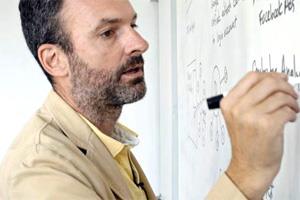 In terms of filmmaking, The Great Hack is one of those stream-of-consciousness documentaries that doesn’t rely on a narrator, and it’s better for it.
In terms of filmmaking, The Great Hack is one of those stream-of-consciousness documentaries that doesn’t rely on a narrator, and it’s better for it.
It takes real skill to make a coherent program that doesn’t rely on a voiceover to tell us what to think and when to think it. The effect is two-edged. Not only does it make The Great Hack more fun to watch — each and every viewer’s voice becomes the inner narrator — but it’s a reminder of just how cheap and tawdry most TV documentary-making is, from bullying narration to loud, obnoxious, computer-generated music, noise for people to watch Nova by, program-making aimed at the lowest common denominator, and just one level above reality TV: George Orwell, as told on Big Brother.
The Great Hack is sleek and entertaining, but you also come away thinking about what you’ve just seen. Would you ever consider deleting your Facebook account? It’s a question you might never have asked yourself until you saw The Great Hack. (Personally, I wouldn’t and I won’t, though I have friends who’ve done exactly that, some of them after seeing The Great Hack.)
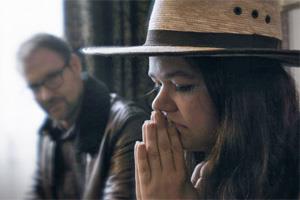 The Great Hack does have flaws, but they’re minor. The central point-of-view character, Brittany Kaiser (right), is a former Obama volunteer campaign staffer who became a prominent, high-profile consultant for Cambridge Analytica and a valuable — incalculably valuable, some might say — go-between between Cambridge Analytica and the Trump campaign, one of the data-sharing firm’s key clients at the time (the other being the UK’s Leave EU campaign, chief architects of the Brexit mess).
The Great Hack does have flaws, but they’re minor. The central point-of-view character, Brittany Kaiser (right), is a former Obama volunteer campaign staffer who became a prominent, high-profile consultant for Cambridge Analytica and a valuable — incalculably valuable, some might say — go-between between Cambridge Analytica and the Trump campaign, one of the data-sharing firm’s key clients at the time (the other being the UK’s Leave EU campaign, chief architects of the Brexit mess).
Kaiser makes a flighty, unreliable witness at first, opinionated and strangely superficial, blissfully unaware of the consequences of her actions and blissfully unaware of the disconnect between working for the Obama campaign one minute and then going all-in on the Trump campaign.
The filmmakers know what they’re doing, though. They’re telling a story.
Toward the end of The Great Hack, they reveal why Kaiser behaved the way she did. It’s a heartbreaking revelation. It speaks to the core of how and why working people have to work for a living, and it shows how personal crises can throw even the most carefully laid career plans for a loop.
For that reason alone — and it’s reason enough — The Great Hack makes for absorbing, at times thrilling TV.
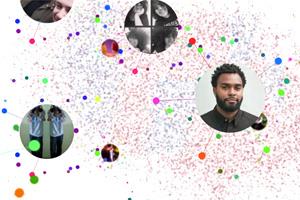 Imagine if you will, a documentary about politics and political scandal that, in the end, transcends politics. It becomes something else entirely — a film about why we do the things we do, who knows, and what they can then do with that information.
Imagine if you will, a documentary about politics and political scandal that, in the end, transcends politics. It becomes something else entirely — a film about why we do the things we do, who knows, and what they can then do with that information.
The Economist said The Great Hack is misinformed, and the Guardian called it a searing exposé. In the end, it’s neither. It’s something bigger, and better. It’s about life itself. And it just might be the best documentary you’ll see all year.